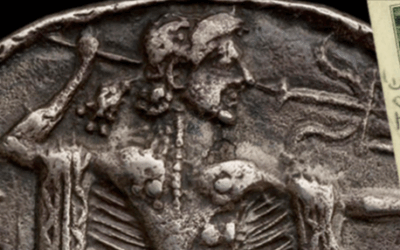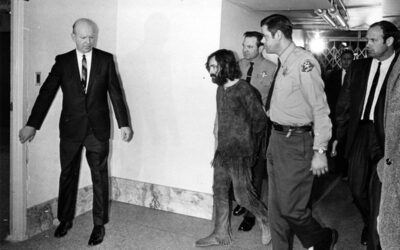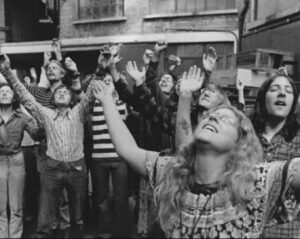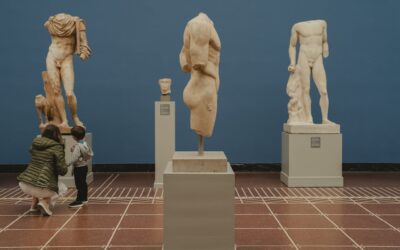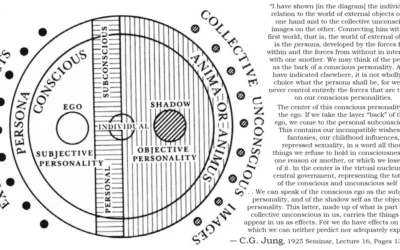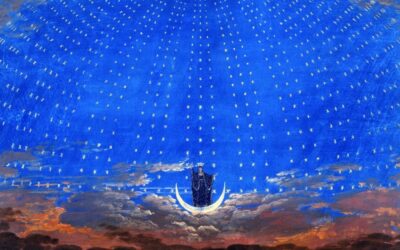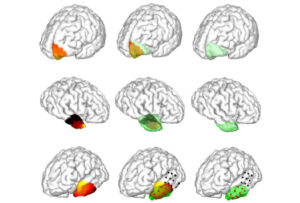The relationship between individuals and economic systems under capitalism exhibits patterns disturbingly reminiscent of trauma bonding, that psychological phenomenon where victims develop emotional attachments to their abusers. This is not metaphorical flourish but rather a precise description of the psychological dynamics at play when human beings form identificatory relationships with economic structures that systematically undermine their wellbeing. The research on trauma bonding from the National Center for...
The Shadow Economy: Collective Repression and Financial Systems
The architecture of our economic systems reveals far more than the movement of capital and commodities. Beneath the rational veneer of market mechanics lies a profound psychological infrastructure, one that Jung would recognize as the manifestation of collective shadow material projected onto the seemingly objective realm of finance. Our economic structures, far from being neutral mathematical constructs, serve as vast repositories for the repressed aspects of the collective psyche, creating what we might call a...
The Cult Psychology of The Satanic Panic
Understanding the Appeal of a Moral Panic What was the Satanic Panic The 1970s and 1980s saw a wave of moral hysteria known as the "Satanic Panic," characterized by widespread fear of alleged Satanic cult activity. Despite a lack of evidence, many Americans became convinced that a vast, underground network of Satanists was responsible for everything from child abuse to human sacrifice. This essay will examine the social and psychological factors that made people vulnerable to these conspiracy theories, including...
The Cult Psychology of Jonestown
What was the Jonestown Cult? The Peoples Temple, led by Jim Jones, was a notorious cult that ended in the tragic mass murder-suicide of over 900 of its members in Jonestown, Guyana in 1978. While its shocking end makes it stand out, many of the manipulative tactics and situational factors that allowed Jones to exert such control were not unique. As the saying goes, in most cults, little of what is good is original, and little of what is original is good. By examining the Peoples Temple and Jonestown, we can gain...
The Cult Psychology of The Branch Davidians
The Tragedy of the Branch Davidians: Abuse, Control, and the Perils of Charismatic Leadership Who was David Koresh? The 1993 Waco siege that ended in the fiery deaths of David Koresh and over 70 of his Branch Davidian followers shocked the world. But upon closer examination, the tactics Koresh used to ensnare and control his followers were not entirely unique. While the Branch Davidians took them to deadly extremes, elements of Koresh's playbook can be found in other cults as well as abusive interpersonal...
The Cult Psychology of The Manson Family
The Manson Family Cult: Origins, Influence, and Lessons Stolen and Reappropriated Elements The beliefs and practices of cults often combine unoriginal elements in novel but misguided ways. The Manson Family was no exception, drawing from various psychological models, religious traditions, and pseudoscientific ideas of the era. Charles Manson, the cult's charismatic leader, wove together a patchwork theology that included references to Scientology's concept of "clearing," the Process Church's worship of both...
Cult Psychology of the Solar Temple
The Rise and Fall of the Order of the Solar Temple What was The Order of the Solar Temple The Order of the Solar Temple was a destructive cult that operated in the late 20th century, leaving a tragic legacy of mass suicides. Founded by Joseph Di Mambro and Luc Jouret, the cult blended elements of esotericism, New Age spirituality, and apocalyptic thinking to attract followers seeking meaning and transcendence. This essay will examine the origins, practices, and ultimate downfall of the Order of the Solar Temple...
The Rise and Fall of Aum Shinrikyo
What was the Aum Shinrikyo Cult? Cultural Anxieties, Psychological Manipulation, and a Cult's Deadly Legacy Stealing from Other Systems Aum Shinrikyo, like many cults, appropriated and repackaged beliefs and practices from various religions, philosophies, and scientific fields, rather than developing a wholly original worldview. The group cobbled together elements of Buddhism, Hinduism, Christianity and New Age spirituality into an eclectic amalgam used to justify their leader's authority. Aum's central practice...
The Sullivanian Institute: Anatomy of an Urban Psychotherapy Cult
What was the "Sullivans" Psychotherapy Cult? The Sullivanian Institute, a notorious psychotherapy cult that operated in New York City from the 1950s through the 1980s, exemplifies the adage that in cults, nothing good is original and nothing original is good. Many of its core practices and beliefs were repackaged from other psychological models, religious traditions, and scientific theories: The emphasis on interpersonal dynamics in therapy sessions was adapted from the work of psychiatrist Harry Stack Sullivan,...
Insights into the Origins of Architecture and Psyche
Birth of Psyche Through the Invention of Architecture Key Ideas: The invention of architecture during the Neolithic period marked a significant shift in human psychology and religion, creating a division between natural and man-made spaces and giving rise to new concepts of ownership, territoriality, and sacred spaces. The relationship between architecture and the awareness of death is explored, with the idea that built structures allowed humans to create a sense of permanence and continuity in the face of...
The Divided Mind and the Quest for Meaning Part 2
The Divided Mind and the Quest for Meaning Part 1 Part 2 >Part 3< The Meta-Modern Mind in a Technological Age As we explore the evolution of human thought and culture, it becomes clear that the themes of the divided mind and the misappropriation of metaphor play out not only in individual psychology but also on a larger scale through cultural movements and political tides. Just as individuals struggle to reconcile their subjective experiences with objective reality, societies grapple with the...
The Religious Impulse: How Trauma and Misappropriated Intuition Fuel Conspiracy Theories
The Divided Mind and the Quest for Meaning Part 1 > Part 2 < Part 3 The Misappropriation of Metaphor: How Trauma and Bias Can Distort Our Understanding of Reality Main Ideas and Key Points: The human psyche is shaped by millions of years of evolutionary history, and the conflict between the rational, conscious mind and the deeper, instinctual layers of being is a key challenge of the human condition. The evolutionary development of the human brain has led to the emergence of the "reptilian"...
The Divided Mind and the Quest for Meaning
The Divided Mind and the Quest for Meaning >Part 1 < Part 2 Part 3 Navigating the Complexity of Human Consciousness The Internal Struggle of the Human Psyche In the landscape of human consciousness, a profound and often tumultuous battle rages - a conflict between our subjective, intuitive experiences and our objective, rational understanding of the world. This internal struggle, which lies at the core of our psyche, has been a subject of fascination for philosophers, psychologists, and...
Games, Language, Religion and the Unconscious Mind: Can Games Explain Conciousness?
Humans split their own consciousness into the self and the other, enabling objective recognition. -Mamoru Oshii, Director of the Ghost and the Shell. Abstract and Key Points: Games, language, religion, and quantification abilities seem intrinsically linked to core human cognitive structures that likely co-evolved. Chomsky's theories of innate universal grammar parallel the archetypal patterns and symbolic frameworks described by thinkers like Jung, Frazer, and Eliade. Games can be viewed as modes of "play"...
Lessons and Exercises from Greek Myths and Mystery Cults for Psychotherapy
Harnessing the Power of Greek Mythology in Psychotherapy "Song, as you teach it, is not desire, not courtship of something finally attained. Song is reality. Simple, for the god. But when are we simple? When does he pour the Earth and the stars into us? This is not about you, youngster, even if you suddenly grasp it, stammering - it's not about you at all." Rilke's Sonnets to Orpheus As psychotherapists, we are constantly seeking new ways to help our clients navigate the complexities of the human experience. One...
Healing the Modern Soul: Finding Meaning in a World of Broken Images
Navigating Uncertainty, and Finding Meaning in a Fractured World Our era is characterized by the dominance of hyper-rationality and the relentless pursuit of objective truth, production, accomplishment and consumption. The human psyche finds itself adrift in a sea of fragmented images and disconnected meanings as the previous myths that used to give us purpose are exposed as hollow or erroneous. I see patients everyday that describe this phenomenon but not in these words. It is as if they are saying that...
Gnosticism: Modern Lessons in The Ancient Pursuit of Divine
What is Gnosticism? Gnosticism, a multifaceted religious and philosophical movement that flourished in the early centuries of the Common Era, has captivated the minds of spiritual seekers and scholars alike. Originating in the Mediterranean region, Gnosticism derived its name from the Greek word "gnosis," signifying an intimate, experiential knowledge of the divine. This ancient wisdom tradition sought to address the fundamental questions of human existence, the nature of the divine, and the path to spiritual...
Is Gastaut-Geschwind Syndrome What’s Behind a Cult Leader
Exploring the Link Between Geschwind Syndrome and the Behaviors of Mystics and Cult Leaders Throughout history, many influential mystics, prophets, preachers, and cult leaders have displayed a distinct set of personality traits and behaviors, including an intense preoccupation with religion, morality, and purity; hypergraphia (compulsive writing); abnormal sexual behavior; and a strong fixation on the body and food. Intriguingly, neuroscientists have identified a form of epilepsy called temporal lobe epilepsy...
Interview with Janjah Lalich on Cults, High Control Groups and Deprogramming
In this riveting episode, we delve into the complex world of cults and high control groups with Dr. Janja Lalich, a distinguished professor emeritus and renowned cult expert. Dr. Lalich shares her personal journey from a cult member to a leading authority in the field, offering unique insights into the mechanisms of control and manipulation employed by cult leaders. We explore the psychological underpinnings that make individuals susceptible to cults, the devastating impact on those who escape, and the challenges...
Cults, Conspiracies, Psychedelics and Yoga; a discussion with Julian Walker
In this compelling episode of the podcast, we delve deep into the intricacies of the Yoga and Wellness communities with seasoned yoga teachers who have critically observed the industry for over 20 to 30 years. Their unique perspectives shed light on the blend of spirituality and pseudoscience prevalent within these circles, highlighting the phenomenon of spiritual bypassing and the depoliticization of core human concerns. The discussion takes a turn towards the alarming spread of conspiratorial content witnessed...
The Psychology of Cults: Unveiling the Mechanisms of Mind Control and Influence
The phenomenon of cults, a subject that has fascinated and alarmed society for decades, remains a critical area of study within psychology and sociology. The allure of cults can be traced back to the complex interplay of psychological manipulation, charismatic leadership, and the human quest for belonging. This article delves into the groundbreaking work of scholars such as Robert J. Lifton, Margaret Singer, Janja Lalich, Steven Hassan, Eileen Barker, David G. Bromley, and James T. Richardson, to explore the...
Cults in the Lens of Modern Capitalism
The term 'cult' often conjures sensationalist imagery and extreme behavior. However, a closer examination reveals a more complex relationship between cults, capitalism, and societal norms. This article delves into this interconnection, highlighting the need for a more nuanced understanding of cults beyond their sensationalist portrayal. The Cult-Capitalism Nexus The rise of figures like Keith Raniere of NXIVM has drawn public attention to cults. However, the fascination with such figures often overshadows similar...
“Unveiling Deception and Devotion: Unraveling Matt Hongoltz Hetling’s ‘If It Sounds Like a Quack'”
Matthew Hongoltz-Hetling is a freelance journalist specializing in narrative features and investigative reporting. He has been named a finalist for the Pulitzer Prize, won a George Polk Award, and been voted Journalist of the Year by the Maine Press association, among numerous other honors. His work has appeared in Foreign Policy, USA Today, Popular Science, Atavist Magazine, Pulitzer Center on Crisis Reporting, the Associated Press, and elsewhere. Welcome to an intellectually stimulating episode that...


